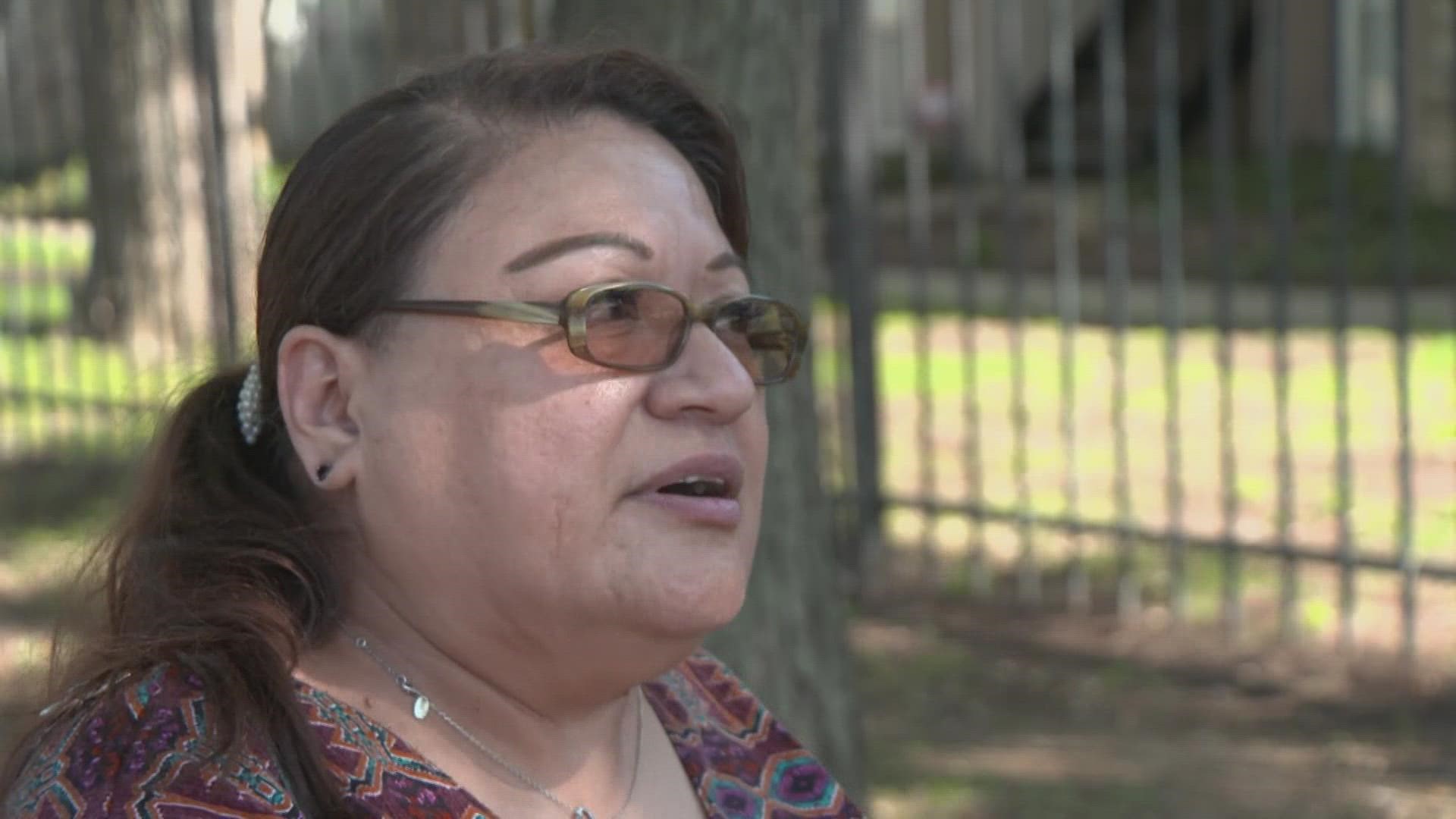Catalina Villa Gomez and her son moved to Fort Worth five months ago because they wanted to feel safe. They live near Boca Raton Boulevard and Country Club Road, which police consider a hot spot for crime.
"I heard a lot of crime going on here in Texas," Villa Gomez said. "This neighbor right here next to me, she says that, you know, she has my back. If anything happens to you, you hear anything, if anything happens, she'll call me and see what's going on."
Fort Worth Chief of Police Neil Noakes identified violent crime hot spots during a Monday news conference. Noakes revealed his strategic plan to help keep people who live, work, shop and visit Cowtown as safe as possible. He also highlighted that reducing crime is not something police can do alone.
Right now, the number of aggravated assaults in Fort Worth are outpacing other violent crimes when it comes to the number of cases.
"We're specifically looking at shootings in Fort Worth," Noakes said. "We've seen on that rise from a low of 146 shootings in 2018 to 388 in 2021. That is a 165% increase here in our community in Fort Worth. We've seen homicides increase from 71 in 2019 to 118 in 2021, a 66% increase. To me, those statistics are not just numbers on a page."
RELATED: Fort Worth police chief wants to reduce violent crime by 10 percent over the next 12 months
Noakes wants to reduce violent crime by 10% in the next year. His "Violent Crime Strategy" plan includes getting community feedback, partnering with local businesses, improving access to Social Services and partnering with Faith Leaders like Pastor Ross Geyer, who has seen it all in the Woodhaven area of Fort Worth. That neighborhood butts up against one of the hot spot neighborhoods that will be the focus of reducing violent crimes.
Geyer has decades of experience working with social service agencies and parole and probation workers. He is not only concerned about the recent rise in crime, but also the increasing rate that people exiting prison are re-offending because they don't have the proper tools to help them adjust to a society.
"I don't claim to be a criminologist and Chief Noakes is a great chief," said Geyer.
Geyer operates Obadiah's House in Fort Worth. It's a transitional home for adult men getting out of prison. As a pastor, he believes that Noakes will have more success if his officers spend time in the community, instead of constantly only answering 911 calls. Geyer wants more people knowing officers by name.
"Not just be in a black and white unit driving by. But there goes Officer Jones, there goes Officer Smith. And then, people can know who they are," said Geyer.
The chief's strategy also includes addressing the underlying root causes that leads to violent crimes in Fort Worth. He believes by addressing those root causes it will help impact the rise in cases.
Noakes has also gained the support of city leadership for his strategy and the 10% crime reduction goal over the next year.
"We are so fortunate to have a mayor, a city manager and city council that supports us and supports our efforts using their leadership, using the leadership of other departments within the city, our city attorney's office code, compliance parks and REC, economic development, diversity, and inclusion," Noakes said. "We work with all those departments to find what we can do to work together to address the environmental conditions in the neighborhoods that are contributing to the violent crime."
Noakes' crime fighting plan couldn't come soon enough for Tinnekia Gibson. She suspects after 30 years in her same neighborhood; some crime stems from outsiders. She and her children often hear gunfire in their neighborhood, which is also identified as a hot spot by Fort Worth Police.
Gibson said she has noticed more police cars in the neighborhood. But she too knows it will take more than just seeing a squad car go by, especially since she suspects the people committing crimes near her home are from elsewhere.
"I think they say, well, I'm not from here, let me try to rob this person or let me try to do this or you know... But once they get here, they learn you can't do that. They be like, you got to watch your back," said Gibson.
You can learn more about the Fort Worth Police Department Violent Crime Strategy Plan here.

